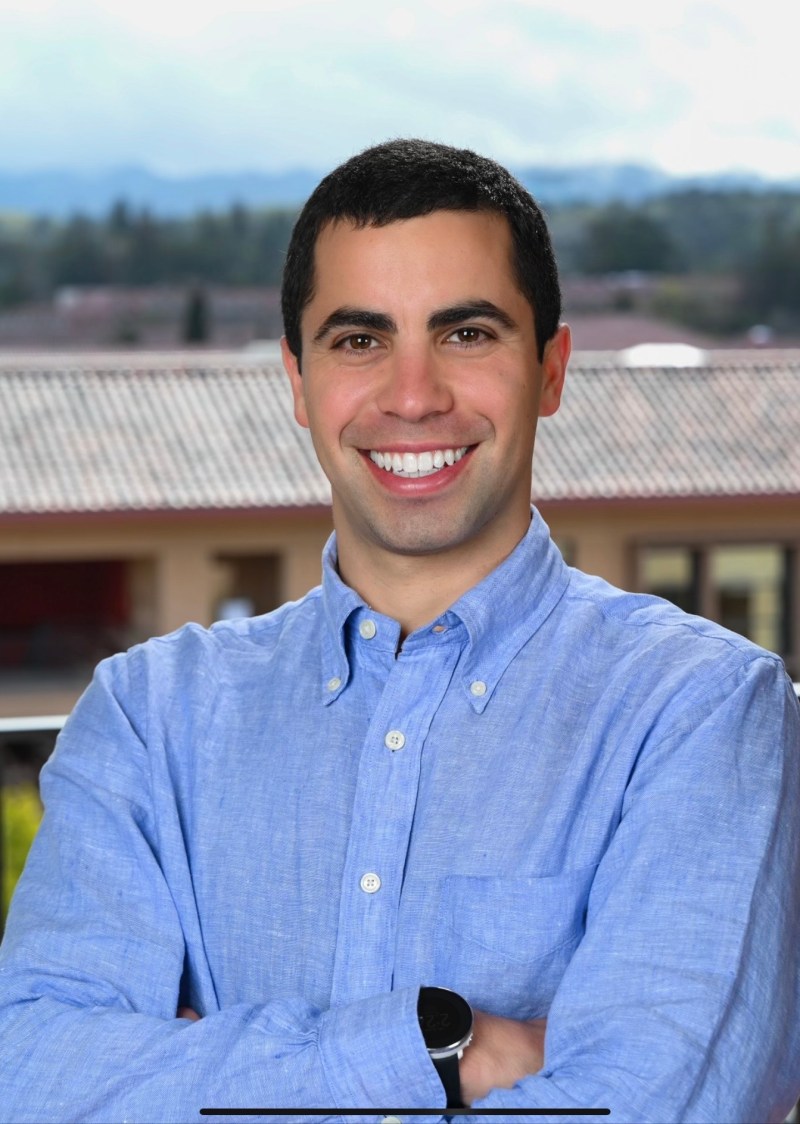This interview is part of a series with candidates for California’s 16th Congressional District.
Joby Bernstein M.S. ’24 MBA ’24 is a former Congressional staffer and has spent his professional career working in finance. He is running as a democrat to represent California’s 16th district in the United States Congress, a seat which will be vacated by Anna Eshoo after 16 terms. The top two candidates from the March 5 primary will head to a general election on Nov. 5, 2024.
This interview has been lightly edited and condensed for clarity.
The Stanford Daily (TSD): Why are you running?
Joby Bernstein (JB): Today we have a climate where, due to the amount of emissions that our nation and other countries have emitted, we are forced to deal with wildfire smoke, floods and air pollution that prevents our children from breathing.
We have an immigration system that is breaking in every part, and we have an education system where it’s both extremely expensive and unaffordable for parents to send their children to Pre-K.
I bring a background of coming from the business world and policy experience, and I bring research to back ideas that can fix and fight these intergenerational issues we’re facing today — climate change, immigration and the justice system.
Some people will say, “go and start a business, earn money, then fund a campaign later.” But if you care about these issues, we have five to 10 years to turn the ship and chart a better course.
TSD: Do you believe the primary path to solving these issues comes from national legislation or directives focused on Silicon Valley?
JB: Silicon Valley has an unmatched amount of climate startups. These issues, though, can’t be fixed just in Silicon Valley. We do need national legislation, because so much of this crosses borders. California’s grid is often 90% renewable. But if Nevada and Utah don’t catch up, emissions move across state borders and countries. California can do a lot and set the policy, but we are not an island.
TSD: We’ve spoken on how the issues of climate, education and immigration impact us all. How do you view them to be interconnected with each other?
JB: To me it’s all about future generations, and ensuring that we can both protect the legacy of Americans today and build a future that will work for everyone. That future doesn’t exist if we don’t have an environment that we can live in. If we don’t give every child in America the chance to have a first rate education and achieve what’s possible for them, if we don’t ensure that the American dream is accessible to those who want to come here and work hard, it doesn’t exist.
I’m scared that the way things are set up right now, we are not going down a path that will be attainable in the next few decades. We need someone who’s young, who’s willing to stick up for what they believe in and willing to stick up to ensure that future generations are protected — because it has not worked in the past, because Congress is run by people who are on average three years away from getting social security benefits.
TSD: You’ve spoken much on the future of climate and sustainability. What do you think is the best path forward?
JB: I’d call a few things important. The first is efficiency. For instance, if homes in California switched from gas boilers to a heat pump, they can get large grants from both the government at a federal level and at a state level. Second, we need to find ways to properly price carbon. I want to create a carbon dividend. The wealthiest are generally causing some of the biggest problems but aren’t paying for it.
If you tax carbon correctly, we would give that money back to all Americans. It would be basically distributed as a form of universal basic income.
Lastly, the third point would be around conservation. Our national parks are a natural wonder — America’s best idea.
TSD: Was that an endorsement for universal basic income?
JB: Yeah, I think through a carbon tax, you can create universal basic income. It would take a few years to roll into place. But we’re getting to a point in society where universal basic income is not a question of if, but when.
TSD: As you know, Congresswoman Eshoo served for 30 years. But for exactly two-thirds of her term, the Democrats were in the minority in the House of Representatives. When in the minority, how do you intend to move your agenda forward?
JB: I am one of the few people who’s worked with Republicans before. I used to work for Senator Portman — a Republican from Ohio on the Hill. I’ve also worked for Republican representatives in New Hampshire and Vermont. Working across the aisle is something that can be done if you know what to focus on. I think everyone, no matter where they’re elected, cares about creating a better America. People have different ideas on what it takes to get there, but I think people for the most part are willing to work together if they think it makes sense for the country and makes sense for their district.
TSD: What do you have to say to the Stanford community?
JB: My platform should resonate with Stanford students for creating a better path for improving education and improving our environment. If people are interested in volunteering, I could use help canvassing door to door and phone banking. But ultimately, I want to fight with you.
